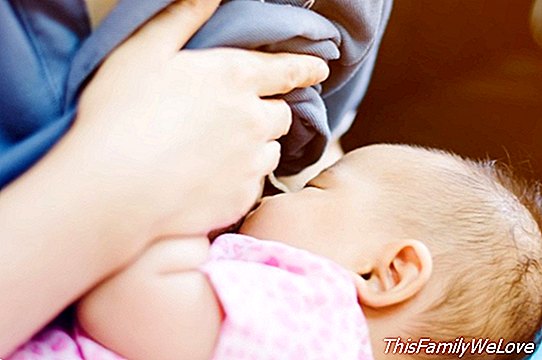The great benefits of breastfeeding in the first minutes of the newborn

What doubt is there that breastfeed to babies is always a good option? The first food that the youngest children receive benefits them from their beginnings in this world. In fact, organisms such as Unicef not only affect the benefits of breast milk for babies, but the importance of offering these nutrients in the early minutes of the babies.
In fact it is not recommended to delay breastfeeding in newborns beyond one hour as this could have serious consequences as Unicef says in its report Capture the moment. A publication where children are encouraged receive the chest during its first minutes of life and maintain it during the 6 months of life of it.
Breastfeed in the first hour
From the World Health Organization, WHO, and the United Nations Children's Fund, UNICEF, it is recommended that children receive the breast during their first hour after birth. Activity that must be maintained exclusively during the first six months of life, which means that other foods or liquids must not be provided.
According to a meta-analysis of five studies conducted in four countries, more than 130,000 newborns fed with breast milk Among all of them, those who started receiving the breast between 2 and 23 hours after birth had a 33% higher risk of dying compared to those who received this food one hour after delivery.
Among the newborns who started breastfeeding 24 hours or more after birth, the risk was more than doubled. The protective effect of early lactation existed regardless of whether the children were breastfed exclusively or not.
From the 6 months, children should start receiving safe and adequate complementary foods while they are breastfed for two years. The early initiation of breastfeeding should be carried out in the following way: putting newborns the breast inside their mouth in the first hour of life.
Benefits early breastfeeding
From the World Health Organization, WHOThe benefits of early breastfeeding are also highlighted. Breast milk contains all the nutrients that the child needs during the first six months of life. Breastfeeding protects against diarrhea and common childhood illnesses, such as pneumonia, and may also have long-term health benefits for the mother and child, such as reducing the risk of overweight and obesity in childhood and adolescence.
The supply of breast milk to the child during the first hour of life is known as "early initiation of breastfeeding"; this way he makes sure that he receives the colostrum ("first milk"), rich in protective factors.
Current studies indicate that the direct contact of the skin The mother's with the child shortly after birth helps initiate early breastfeeding and increases the likelihood of maintaining exclusively breastfeeding between the first and fourth month of life, as well as the total duration of breastfeeding. Newborns who come into direct contact with their mother's skin also seem to interact more with them and cry less.
Damián Montero




